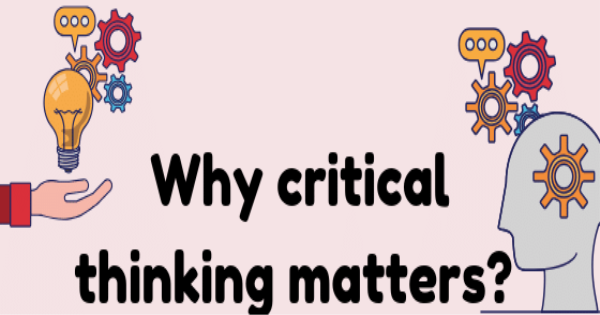In a fast-paced world where knowledge is power and time is precious, learning efficiently is more important than ever. Whether you're mastering a new language, picking up a musical instrument, or studying for a certification, the ability to learn faster gives you a significant edge. Fortunately, science offers a variety of strategies to help accelerate the learning process. This article explores evidence-based techniques that can help you learn anything faster—and retain it longer.

1. Use Active Recall Instead of Passive Review
One of the most powerful techniques for faster learning is active recall. Instead of rereading notes or highlighting text, which are passive activities, active recall involves testing your memory—trying to retrieve information from your brain without looking at your notes.
For example, after reading a chapter, close the book and try to write down everything you remember. Flashcards and practice quizzes also utilize this method. According to research published in Science (2011), students who used active recall retained 50% more than those who used traditional review methods.
2. Embrace Spaced Repetition
Spaced repetition is the practice of reviewing information at increasing intervals over time. It is based on the psychological spacing effect, which shows that information is more likely to be retained if reviewed periodically rather than crammed in one sitting.
Tools like Anki or Quizlet employ this method effectively. For instance, if you're learning vocabulary, you'll see a new word frequently at first, and then less often as you show you remember it. This method strengthens memory consolidation and reduces forgetting.
3. Use the Feynman Technique
The Feynman Technique, named after physicist Richard Feynman, is a simple yet profound way to deepen your understanding. It involves four steps:
-
Choose a concept you want to learn.
-
Teach it in simple language, as if to a 5-year-old.
-
Identify gaps in your explanation.
-
Go back to the source material, review, and simplify again.
By forcing yourself to explain something in simple terms, you’re ensuring that you truly understand it—rather than just being able to repeat it.
4. Study in Short, Focused Sessions (Pomodoro Technique)
Long study marathons are not only tiring but also less productive. The Pomodoro Technique involves working in short, focused intervals—usually 25 minutes of studying followed by a 5-minute break. After four sessions, you take a longer break of 15–30 minutes.
This technique helps maintain concentration and prevent mental fatigue. Research suggests our attention span naturally wanes over time, so shorter bursts align better with how our brain functions.
5. Multisensory Learning
Engaging multiple senses while learning enhances understanding and memory. For example, when learning new material, read it aloud (auditory), write it down (kinesthetic), and look at diagrams or illustrations (visual).
Studies from the journal Frontiers in Psychology have shown that multisensory learning increases cognitive processing and retention, particularly when compared to single-sense learning methods.
6. Teach Others What You've Learned
The "protégé effect" refers to the phenomenon where teaching others reinforces your own learning. When you're preparing to teach a concept, your brain organizes the information more clearly, and you’re more likely to identify knowledge gaps.
Whether it's tutoring a friend or simply explaining a topic aloud to yourself, this method deepens your understanding and improves recall.
7. Sleep to Cement Learning
Never underestimate the power of sleep when it comes to learning. Research from Harvard Medical School shows that sleep plays a crucial role in memory consolidation. During deep sleep stages, the brain strengthens new neural connections and prunes irrelevant ones.
Pulling all-nighters may help you cram temporarily, but your retention and cognitive performance will suffer in the long term. Aim for 7–9 hours of sleep per night and avoid late-night studying.
8. Stay Physically Active
Exercise boosts brain health and enhances learning. Physical activity increases blood flow to the brain, improving memory, focus, and mood. A study from the British Journal of Sports Medicine found that just 20 minutes of aerobic exercise can facilitate information processing and memory retention.
Incorporating regular physical movement into your day—even a brisk walk—can make your study sessions more effective.
9. Set Specific, Measurable Learning Goals
Rather than saying, “I want to learn French,” set a specific and measurable goal such as, “I will learn 30 new French vocabulary words per week.” Specific goals help guide your learning, provide motivation, and allow you to track your progress.
SMART goals (Specific, Measurable, Achievable, Relevant, and Time-bound) are a proven framework for optimizing productivity and learning outcomes.
10. Apply What You Learn Immediately
Application reinforces memory. If you're learning coding, try building a small project. If you're studying psychology, apply theories to real-life situations. The sooner and more frequently you use what you've learned, the stronger those neural pathways become.
This principle is aligned with experiential learning, which emphasizes learning through doing. It’s especially effective for complex skills that require practice and context.
11. Use Mental Associations and Mnemonics
Mnemonic devices and mental imagery can be powerful tools for memorization. Acronyms (e.g., PEMDAS for the order of operations in math) or creative stories linking unrelated words help encode information more efficiently.
By associating new information with familiar concepts, you create “hooks” for your brain to retrieve that knowledge later.
12. Maintain a Growth Mindset
Finally, your attitude toward learning significantly impacts your ability to learn. According to psychologist Carol Dweck, individuals with a growth mindset—believing that intelligence and ability can be developed—learn faster and more effectively than those with a fixed mindset.
Instead of fearing mistakes, embrace them as part of the learning journey. Persistence, curiosity, and a willingness to struggle through challenges often lead to breakthroughs.
Ilmkidunya










































